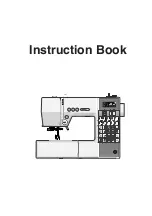
6
RULES FOR SAFE OPERATION
• Depressurize vessel before performing maintenance. Do not remove, repair, or replace any
item on this equipment while it is pressurized. Do not attempt to perform maintenance or load
media while this equipment is pressurized or even capable of being pressurized. This means
at a minimum the inlet ball valve should be closed and ideally the air source be shut off or
disconnected. Any time the manual blowdown valve is closed it should be assumed that the
abrasive blast vessel is pressurized.
• Do not modify vessel. Do not modify or alter any abrasive blaster, blast equipment, or controls
thereof without the written consent of BlastOne. Do not weld, grind or sand the pressure vessel.
It will not be safe to operate. Non-authorized modifications could lead to serious injury or death.
Non-authorized modifications will void your warranty and the vessel’s pressure certification.
• Inspect vessel regularly. Do not operate if the vessel has been damaged. It is not safe. Inspect
the outside and inside of the pressure vessel regularly for corrosion and damage (i.e. dents,
gouges or bulges). If damaged, take out of service immediately and have it inspected and/or
repaired by a qualified facility.
• Check for leaks in vessel. Do not operate this equipment if there is a leak. If leaking, take out of
service immediately have it inspected and/or repaired by a qualified facility.
• Never operate over maximum working pressure. Do not operate this equipment above the
maximum allowable working pressure at the maximum operating temperature as marked on
the nameplate attached to the trailer.
• Never modify discharge. Do not connect the air discharge on this unit onto a common header
with any other unit of any description, or any other source of compressed air, without first
making sure a check valve is used between the header and this unit. If this unit is used in
parallel with another unit of higher discharge and capacity, a safety hazard could occur in a back
flow condition.
• Always use remote controls. Do not sell, rent or operate abrasive blasters without remote
controls. Regulations require remote controls on all blast machine. All blast systems must be
equipped with automatic deadman type remote controls, either pneumatic or electric. Failure to
use remote controls can cause serious injury or death to the operator(s) or other personnel in
the blasting area.
• Check for damaged parts. Do not use this equipment with damaged components. Periodically
check all valves, hoses and fittings to see that they are in good condition. Repair any component
that shows any sign of wear or leakage.
• Always use safety pins on hose couplings. Do not use this equipment without safety pins in
place. All blast hose couplings and air hose couplings are provided with holes that must be
safety pinned to prevent accidental disconnections. Accidental hose disconnection can cause
serious injury or death.
• Always use correct replacement parts. Do not use replacement parts or accessories that
are not rated for pressures equal or higher than your abrasive blaster’s operating pressure.
Improper hoses and/or fittings used on, or connected to your abrasive blaster can rupture and
cause serious injury or death.







































